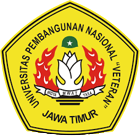Drivers Shaping Indonesian Attitudes and Intentions Toward Open Government Data
Keywords:
attitudes, ease-of-use, internet competence, intention, open government data, usabilityAbstract
Purpose: Indonesia Government implements Open Government Data (OGD) by developing Satu Data Indonesia (SDI) as part of the founding of open government initiative. Therefore, this research aims to analyze the factors that influence citizens' attitudes towards open government data 2.0. In addition, this study determines the influence of attitudes on citizens' intentions to utilize OGD in Indonesia.
Method: This research is quantitative research with primary data sources from distributing questionnaires. The population in this study are Indonesian citizens. The sample was determined by a purposive sampling technique, namely academic residents, with a total of 292 samples. Data analysis technique using PLS-SEM.
Findings: The results of this research show that of the 6 factors, three factors - convenience, usability and internet competence have an influence on citizen attitudes towards open government data. These attitudes influence citizens' intentions to use Open Government Data (OGD).
Novelty: This research is important and appropriate to carry out, especially in Indonesia as one of the founding countries of Open Government Partnership (OGP). This initiative was launched in September 2011 by eight countries - Brazil, Indonesia, Mexico, Norway, Philippines, South Africa, United Kingdom, and the United States - that are committed to making their governments more open and responsible to its citizens. The results of this research make a major contribution in showing several factors to consider in terms of attitudes and intentions to use Open Government Data in Indonesia.
References
Abdelrahman, O. H. (2021). Open Government Data: Development, Practice, and Challenges. http://dx.doi.org/10.5772/intechopen.100465
Ajzen, I., & Fisbbein, M. (1974). Factors Influencing Intentions and the Intention-Behavior Relation. Human Relations, 27(1), 1–15. https://doi.org/10.1177/001872677402700101
Ari, D., & Hanum, L. (2021). Pengaruh Kualitas Pelayanan Website DJP terhadap Kepuasan Pengguna dengan Modifikasi E Govqual. Profit: Jurnal Administrasi Binis, 15(1), 104–111. https://doi.org/https://doi.org/10.21776/ub.profit.2021.015.01.11
Baharon, B., Yap, C., Fatin, S., Ashar, S., Hanafi, M., & Hazmi, M. (2017). Citizen Satisfaction with E-Government Portals in Malaysia. International Journal of Business and Information, 12(3), 289–309. https://doi.org/10.6702/ijbi.2017.12.3.3
Central Statistics Agency / Badan Pusat Statistik. (2023). Jumlah Penduduk Pertengahan Tahun (Ribu Jiwa), 2020-2022. https://www.bps.go.id/indicator/12/1975/1/jumlah-penduduk-pertengahan-tahun.html
Davis. (1986). A Technology Acceptance Model for Empirically Testing New End-User Information Systems: Theory and Results. Doctoral dissertation, Massachusetts Institute of Technology. https://bit.ly/3ZfPcjq
Deci, E. L., & Ryan, R. M. (1985). Intrinsic Motivation and Self-Determination in Human Behavior. University of Rochester. https://bit.ly/BookIntrinsicMotivation
Duţu, A., & Diaconu, M. (2017). Community participation for an open public administration: Empirical measurements and conceptual framework design. Cogent Business and Management, 4(1). https://doi.org/10.1080/23311975.2017.1287980
Effendi, P. (2022). Emosi Individu, Sikap, dan Niat Penggunaan terhadap Website E-Government: Analisis Pada Website Pemerintah Kota Balikpapan. JSI: Jurnal Sistem Informasi (E-Journal), 14(1), 2553–2559. https://repository.dinamika.ac.id/id/eprint/6610/
Fitriani, W., Hidayanto, A., Sandhyaduhita, P., Purwandari, B., & Kosandi, M. (2019). Determinants of Continuance Intention to Use Open Data Website: An Insight from Indonesia. Pacific Asia Journal of the Association for Information Systems, 11(2), 96–120. https://doi.org/10.17705/1pais.11205
Ghozali, Imam. (2019). Aplikasi Analisis Multivariate dengan Program SmartPLS. Semarang: Badan Penerbitan Universitas Diponegoro.
Hair, J. F., Sarstedt, M., Ringle, C. M., & Mena, J. A. (2012). An Assessment of the Use of Partial Least Squares Structural Equation Modeling in Marketing Research. Journal of the Academy of Marketing Science, 40(3), 414–433. https://doi.org/10.1007/s11747-011-0261-6
Jilke, S., & Baekgaard, M. (2020). The political psychology of citizen satisfaction: Does functional responsibility matter? Journal of Public Administration Research and Theory, 30(1), 130–143. https://doi.org/10.1093/jopart/muz012
Juditha, C., & Darmawan, J. J. (2018). Penggunaan Media Digital dan Partisipasi Politik Generasi Milenial. Jurnal Penelitian Komunikasi dan Opini Publik, 22(2), 91–105. https://doi.org/https://dx.doi.org/10.33299/jpkop.22.2.1628
Kemp, S. (2022). Digital 2022: Indonesia. https://datareportal.com/reports/digital-2022-indonesia
Klein, E., & Robison, J. (2020). Like, Post, and Distrust? How Social Media Use Affects Trust in Government. Political Communication, 37(1), 46–64. https://doi.org/10.1080/10584609.2019.1661891
Li, Y., & Shang, H. (2020). Service quality, perceived value, and citizens’ continuous-use intention regarding e-government: Empirical evidence from China. Information and Management, 57(3). https://doi.org/10.1016/j.im.2019.103197
Ma, L., & Zheng, Y. (2019). National e-government performance and citizen satisfaction: a multilevel analysis across European countries. International Review of Administrative Sciences, 85(3), 506–526. https://doi.org/10.1177/0020852317703691
Marco, S., Robles, J. M., & Antino, M. (2014). Digital Skills As a Conditioning Factor for Digital Political Participation. Communications, 39(1), 43–65. https://doi.org/10.1515/commun-2014-0004
Mulyaningsih, & Safitri, W. (2022). How Do People Respond to Local Governments in Communicating Government Programs Through social media? Jurnal Manajemen Indonesia, 22(1), 76–87. https://doi.org/10.25124/jmi.v22i1.4079
Nam, T. (2012). Citizens’ attitudes toward Open Government and Government 2.0. International Review of Administrative Sciences, 78(2), 346–368. https://doi.org/10.1177/0020852312438783
Nursafitri, R. E., & Andayani, S. (2021). Pengaruh Kompetensi Sumber Daya Manusia, Pemanfaatan Teknologi Informasi, dan Sistem Pengendalian Intern Pemerintah terhadap Pengamanan Aset Tetap Daerah. Jurnal Maneksi, 10(2), 177–185. https://doi.org/https://doi.org/10.31959/jm.v10i2.793
Open Government Partnership. (2018). About OGP Local. https://www.opengovpartnership.org/ogp-local/about-ogp-local-program/
Purwanto, A., Zuiderwijk, A., & Janssen, M. (2019). Citizens’ Motivations for Engaging in Open Data Hackathons. 11th IFIP WG 8.5 International Conference, 11686 LNCS, 130–141. https://doi.org/10.1007/978-3-030-27397-2_11
Purwanto, A., Zuiderwijk, A., & Janssen, M. (2020). Citizen engagement with open government data: Lessons learned from Indonesia’s presidential election. Transforming Government: People, Process and Policy, 14(1), 1–30. https://doi.org/10.1108/TG-06-2019-0051
Rahmatika, M., Krismawati, D., Rahmawati, S., Arief, A., Sensuse, D., & Dzulfikar, M. (2019). An Open Government Data Maturity Model: A Case Study in BPS-Statistics Indonesia. 2019 7th International Conference on Information and Communication Technology (ICoICT). https://doi.org/https://doi.org/10.1109/icoict.2019.8835352
Robbins, S. P. (2007). Perilaku Organisasi Buku 1. Jakarta: Salemba Empat.
SimilarWeb LTD. (2019). Website Audience Analysis. https://www.similarweb.com/
Souza, A. A. C. de, d’Angelo, M. J., & Lima Filho, R. N. (2022). Effects of Predictors of Citizens’ Attitudes and Intention to Use Open Government Data and Government 2.0. Government Information Quarterly, 39(2), 1–14. https://doi.org/10.1016/j.giq.2021.101663
Sugiyono. (2019). Metode penelitian Bisnis. Cetakan Kesebelas. Bandung: CV Alfabeta.
Wang, H. J., & Lo, J. (2013). Determinants of citizens’ intent to use government websites in Taiwan. Information Development, 29(2), 123–137. https://doi.org/10.1177/0266666912453835
Weerakkody, V., Kapoor, K., Balta, M. E., Irani, Z., & Dwivedi, Y. K. (2017). Factors Influencing User Acceptance of Public Sector Big Open Data. Production Planning and Control, 28(11–12), 891–905. https://doi.org/10.1080/09537287.2017.1336802
Welch, E. W., Hinnant, C. C., & Moon, M. J. (2005). Linking Citizen Satisfaction with E-government and Trust in Government. Journal of Public Administration Research and Theory, 15(3), 371–391. https://doi.org/10.1093/jopart/mui021
Wirtz, B. W., Piehler, R., & Daiser, P. (2015). E-Government Portal Characteristics and Individual Appeal: An Examination of E-Government and Citizen Acceptance in the Context of Local Administration Portals. Journal of Nonprofit and Public Sector Marketing, 27(1), 70–98. https://doi.org/10.1080/10495142.2014.965082
Wirtz, B. W., Weyerer, J. C., & Rösch, M. (2017a). Citizen and Open Government: An Empirical Analysis of Antecedents of Open Government Data. International Journal of Public Administration, 41(4), 308–320. https://doi.org/10.1080/01900692.2016.1263659
Wirtz, B. W., Weyerer, J. C., & Rösch, M. (2017b). Open Government and Citizen Participation: An Empirical Analysis of Citizen Expectancy Towards Open Government Data. International Review of Administrative Sciences, 85(3), 566–586. https://doi.org/10.1177/0020852317719996
World Wide Web Foundation. (2013). Open Government Data: Readiness Assessment Indonesia. http://webfoundation.org/docs/2013/06/OGD-Indonesia-FINAL-for-publication.pdf






